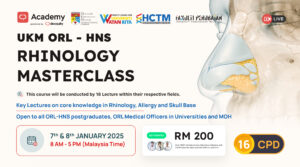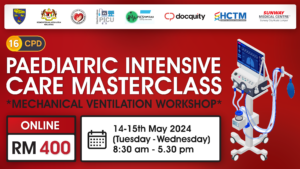
Hospital Infection: Prevention and Control
Hospital Infection: Prevention and Control
An interactive learning course for healthcare professionals to prevent and control the spread of infections and infectious diseases within healthcare facilities.

Overview of Hospital Infection Control Course
Boost patient safety and reduce healthcare-associated infections with our interactive infection prevention and control course for healthcare professionals. Follow evidence-based guidelines, implement practical engineering and biomedical solutions, and foster interdisciplinary cooperation. Combat antimicrobial resistance through antimicrobial stewardship. Join now to promote public health and achieve zero tolerance for nosocomial infections.
Target Audience
Join a hospital infection prevention course for GPs to enhance patient care, minimize infections, and improve outcomes. Gain knowledge, skills, and collaborative abilities to mitigate disease transmission, manage risks, and stay updated with evidence-based practices. Create a safer healthcare environment.
Essential infection prevention course for emergency physicians. Enhance skills, prevent infections in high-pressure environments. Implement evidence-based protocols, collaborate with teams. Prioritize patient safety, manage infections promptly. Stay updated for better care and outcomes.
Nurses play a vital role in implementing infection control measures and ensuring compliance with protocols. A course on hospital infection prevention and control can provide them with specialized knowledge and skills to prevent the spread of infections among patients and healthcare workers.
Professionals specializing in infection prevention and control can benefit from advanced courses that provide in-depth knowledge, up-to-date guidelines, and strategies for implementing comprehensive infection control programs within healthcare facilities.
Infection prevention course for medical professionals: lab scientists, radiographers, respiratory therapists, pharmacists. Enhance understanding, implement measures in patient care for effective infection control.
Empower healthcare administrators and managers with infection prevention course. Develop effective policies, ensure compliance, allocate resources. Cultivate safety culture, enhance infection control programs.
Public health professionals gain from infection prevention course. Understand infectious disease dynamics, implement surveillance, coordinate outbreak control in healthcare settings.
Course Modules
Organization of Hospital Infection Control Committee: Roles and Responsibilities
Module 1 of the hospital infection prevention course focuses on the role of the infection control committee in preventing healthcare-associated infections (HAIs). HAIs are common and costly, causing harm to patients. Antibiotic use and antimicrobial resistance are also addressed. Coordination among healthcare professionals and understanding HAI pathophysiology are emphasised.
Be on the Alert - Surveillance Approaches in Infection Control Practices
Module 2 of the course highlights "surveillance approaches in infection control practices." Surveillance is vital for assessing program efficacy, identifying areas for improvement, meeting reporting requirements, and achieving goals. The module covers standard surveillance methods like hand hygiene, isolation policies, contact precautions, and personal protective equipment (PPE) use.
Special Care Units: Bundle Care
Module 3 focuses on "special care unit and care bundle implementation for infection prevention and control." Care bundles are crucial for consistent, evidence-based care delivery. The module explores the significance of care bundles in infection prevention and control, discussing common approaches used in healthcare settings to optimize patient outcomes.
Surveillance of HAI - The CDC Approach
HAI Surveillance - CDC Approach: Effective HAI surveillance programs assess hospital practices and provide feedback for improvement. The CDC leads in surveillance, outbreak investigations, and prevention. This module highlights key components and the conventional methodology used by the CDC in HAI surveillance systems.
Antimicrobial Stewardship
Antimicrobial stewardship focuses on optimizing antibiotic use to treat infections, prevent harm, and combat resistance. This module covers principles and approaches, including antibiograms, antibiotic policies, and usage audits, promoting effective prescribing and combating antimicrobial resistance.
Staff health: Better be safe than sorry
Monitoring staff health is vital for infection control. This module focuses on safe injection practices, preventing disease transmission during medication preparation and administration. It also covers safe drug administration and preventing nosocomial infections after needle-stick injuries.
Engineering aspects of infection control
This module highlights the engineering aspects of infection control in hospital design. Topics include specialised ventilation systems, washer disinfectants, sterilisers, healthcare laundry, and hospital hygiene. Practical strategies incorporating engineering concepts are discussed for effective infection control.
Behind the camera: Ancillary service in infection control
This module focuses on ancillary services in infection control. Revenue cycle management and health information technology play crucial roles. Housekeeping maintains cleanliness and upkeep. Covers housekeeping checklists, biomedical waste management, vehicle disinfection, laundry, food/kitchen practices to prevent healthcare-associated infections.
Course Reviews
A very good course. The presenter really masters the science, and the moderator leads the webinar very good.

Rahmat Alfiansyah, GP
It was a good programme and I will use the knowledges that I gained from all the sessions to help me to cater better management towards my patients.

Denny Clare
Get to know your Instructor.

Dr. Mahua Das Gupta
Dr. Mahua is the Director of Medical Affairs at Haystack Analytics. She has served as a consultant microbiologist, infection control, and quality head at a renowned corporate hospital. With 18 years of experience, she has been actively involved in various medical associations and forums. Dr. Mahua has published in esteemed journals, including the Indian Journal of Microbiology and Journal of Global Infectious Diseases, showcasing her expertise in the field.
Frequently Asked Questions



